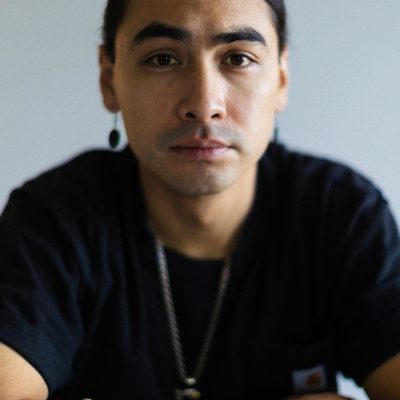Co-director, Sugarcane
Julian Brave NoiseCat is a writer, filmmaker, and student of Salish art and history. His first documentary, Sugarcane, co-directed with Emily Kassie, investigates abuse and missing children at the Indian residential school his family attended near Williams Lake, British Columbia. A proud Canim Lake Band Tsq’escen member and descendant of the Lil’Wat Nation of Mount Currie, he is finishing his first book, We Survived the Night. It will be published by Alfred A. Knopf in North America, Profile Books in the United Kingdom and Commonwealth, Albin Michel in France, and Aufbau Verlag in Germany.
NoiseCat’s journalism has appeared in many publications including The New York Times, The Washington Post, and The New Yorker. He has received numerous awards, including the 2022 American Mosaic Journalism Prize, which honors excellence in long-form, narrative, or deep reporting on underrepresented and/or misrepresented groups in America. In 2021, he was named to the TIME100 Next list of emerging leaders.
Before focusing on writing and filmmaking, NoiseCat was a political strategist, policy analyst, and cultural organizer. In 2019, he helped lead a grassroots effort to bring an Indigenous canoe journey to San Francisco Bay to commemorate the 50th anniversary of the 1969 Alcatraz Occupation. Working with leaders from Indian Country, the progressive movement, and environmental movements, NoiseCat helped turn the idea of appointing Deb Haaland as Interior Secretary into a successful campaign. When Haaland was sworn in, she became the first Native American cabinet secretary in U.S. history.




















